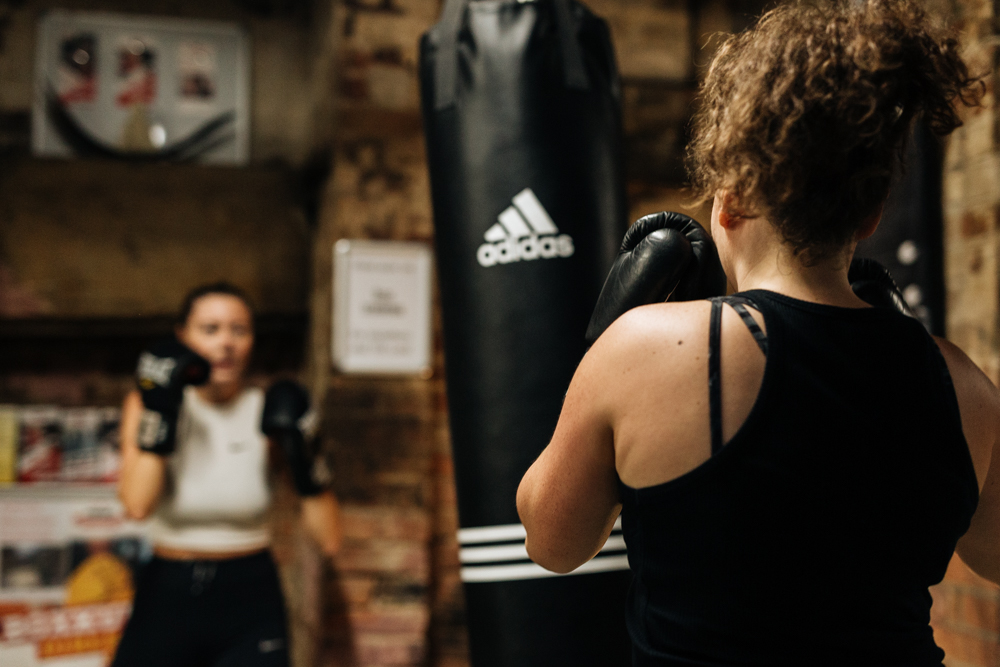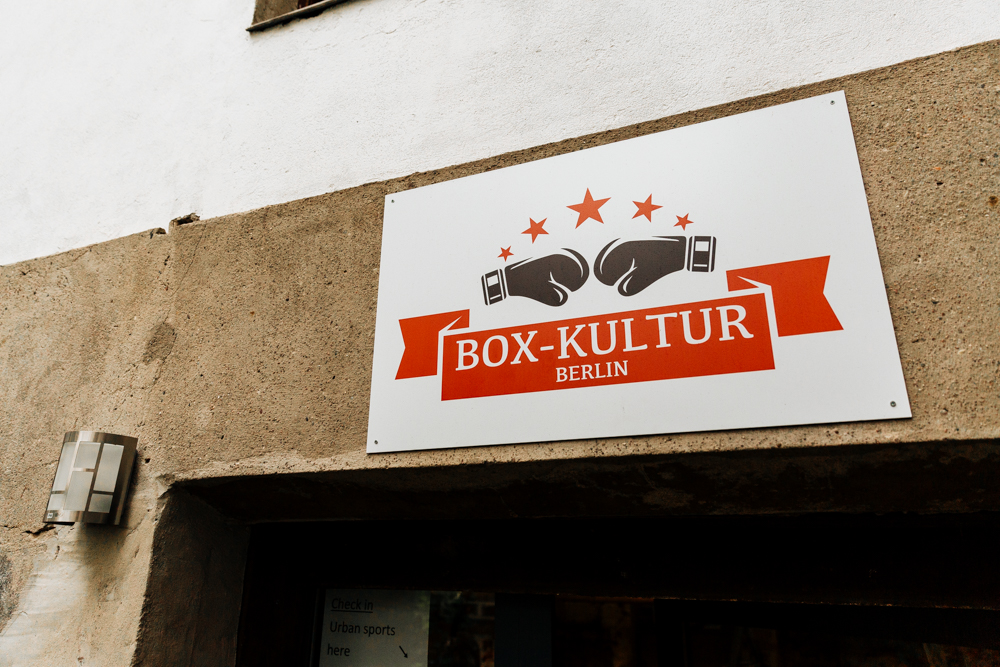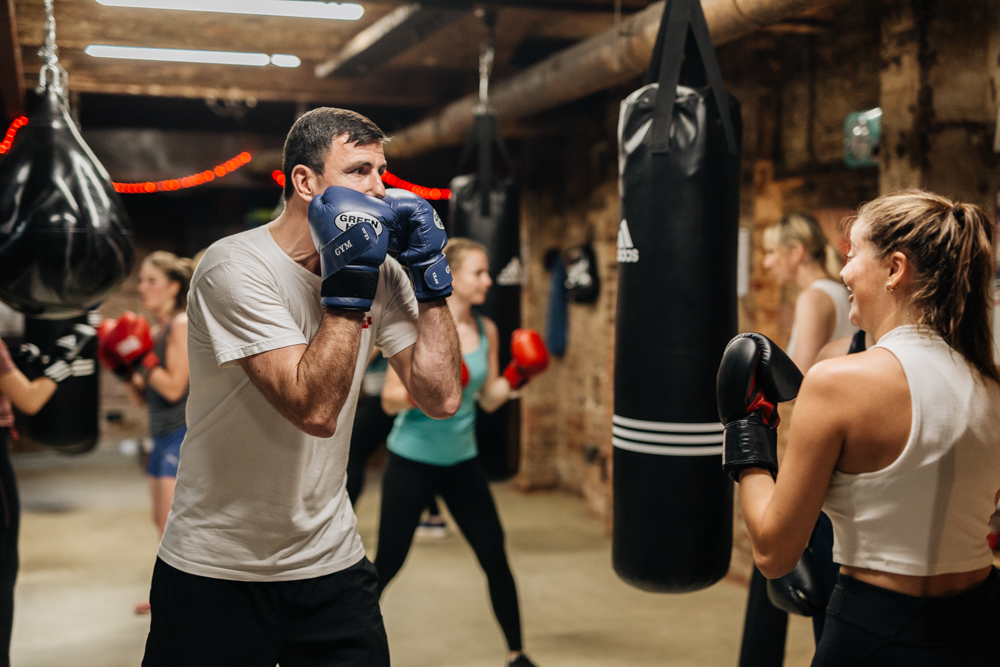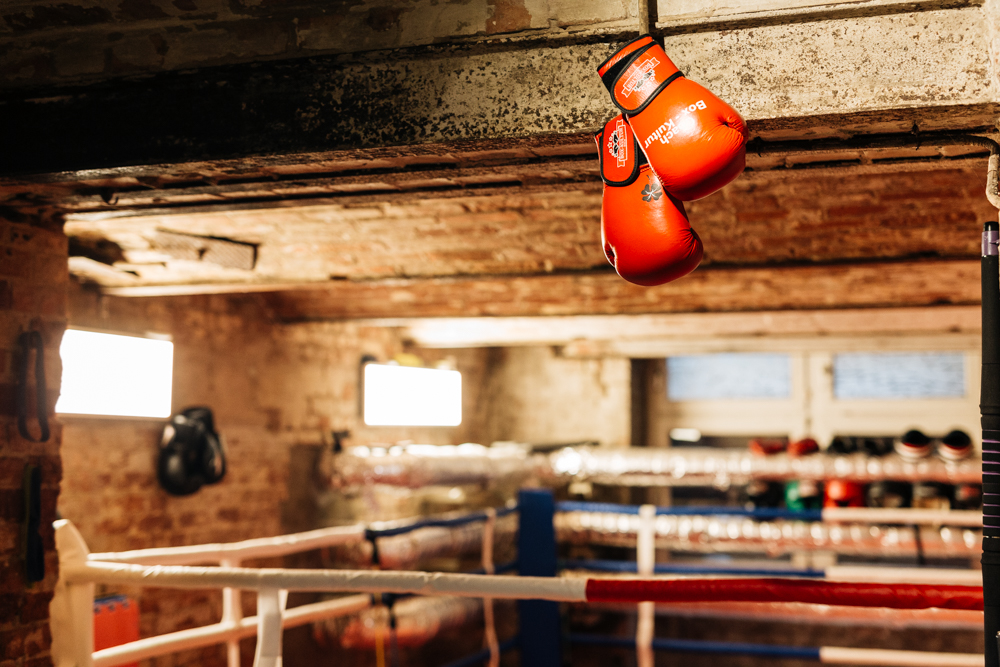
Box-Kultur is a gym with a heart-warming twist
It’s May 1996 and Muhammad Ali stands on stage in front of thousands of people. They cheer wildly as he raises a burning flame to light the Olympic Torch for the 1996 Games. For a World Champion Boxer, simply lighting the Olympic Torch doesn’t seem like such a big achievement. But by ’96 Muhammad Ali was in the late stages of an ongoing battle with Parkinson’s Disease so this was a monumental physical achievement.
Ever since Muhammad Ali’s public diagnosis of Parkinson’s the disease and the sport Ali represents have been closely interlinked. Parkinson’s Disease is caused by degenerative nerve cells in the brain which affects movement and coordination and leads to muscle tremors and limb stiffening. Muhammad Ali lived with Parkinson’s for 32 years and was instrumental in raising awareness that regular exercise, especially after diagnosis, can reduce symptoms and greatly increase the patients’ quality of life.

Today I’m standing in Box-Kultur in Berlin’s Wedding district. The gym looks like a typical fully-equipped, modern boxing facility. It’s just below street level hidden away amongst cafes, shops and alt-baus. But there’s something unique about this gym: it’s the only boxing centre in Germany that dedicates classes to people living with Parkinson’s Disease.

I’m greeted warmly by Jean who is the co-owner of Box-Kultur. He’s about 6 foot 4, wears a Box-Kultur T-shirt and is excited to chat about the gym which he describes as his pride and joy. Jean has been boxing since he was 12 years old, having discovered the sport along with a group of friends as a young boy in East Berlin. “When my buddies and I were teenagers we wanted to learn how to defend ourselves,” he explains. “That’s when we discovered boxing.” Since then Jean has dedicated his life to the sport, opening Box-Kultur with his partner and training anyone from beginners to professionals.
“It’s the fulfilment of my life’s dream to create a place for different people and cultures who care about their fitness to train,” Jean says. And he is truly living this dream by providing training for Parkinson’s patients. His website declares “Boxing training is very helpful for neurological diseases and especially for Parkinson’s disease. Thus a large number of extensive training possibilities are offered, which help maintain control over the neuronal nerve tracts.”

As well as this specialised training Jean also provides female-only boxing classes. His aim is to make boxing accessible to anyone and as the sport has a fierce reputation he worries that women might be intimidated to try a mixed-gender class. So he launched his all-female class which certainly seems to be in high demand; today’s session is totally packed.

Box-Kultur is the ideal setting for a boxing lesson. The walls are made of original red brick and Adidas punch bags dangle from the ceiling. Shiny red boxing gloves line the walls and trophies, flags and pictures of Mohammad Ali are mounted on the exposed brick. The ceilings are low which gives the class an intimate feel and towards the back of the space is a red and black boxing ring. It’s the perfect mixture of sleek and practical and it has a welcoming, open atmosphere.
“We’ll warm up with running, high kicks and knee raises,” Jean says and we dutifully begin sprinting around the studio, dodging between the punch bags. “Next we’ll partner up and practice some boxing techniques.” Everyone in the class picks up a pair of shiny boxing gloves and pays close attention to Jean who shows us how to stand so that we get optimal balance and coordination. We split up into partner A and partner B. Partner A holds their gloves up in front of their face while Partner B hits left right, left right. The sequence is simple but it gets sweaty quickly.

Jean uses a timer to ensure we have an equal amount of time boxing and defending. This is where my small issue of not knowing my right hand from my left hand becomes problematic. One sequence requires we duck as the other person punches overhead. It’s vital I get down at the correct time and in the right direction to avoid getting lamped round the head, but my lack of quick reflexes and confusion over left/right makes the exercise increasingly dangerous. Eventually Jean intervenes to help us make better sense of the sequence – thanks to him we make it out unscathed.
Teaching and guiding boxers of all levels is Jean’s lifelong passion. “I’m a professional amateur boxer,” he explains. “Back when I started learning in East of Berlin, amateur boxing was very unusual. Not many people did it.” Now, however, it’s one of Germany’s most popular sports. To Jean the beauty of boxing lies in the parallels you can draw between the sport and your everyday life outside the ring.
“Boxing is a very complex sport,” He says. “You need skill, coordination, fast reactions. And with boxing you always have parallels with your own life.” He explains how in business you must be focussed and motivated, creative and respectful. “It’s the same in the ring. Boxing has shaped me as a person. The sport taught me humility and respect.”

Boxing is regularly used as a metaphor for life and with good reason. If you get knocked down in boxing, as with life, you have to get back up again. To ‘roll with the punches’ is a phrase used often in life and is also a technique used in boxing to minimise the impact of a hit. Another example and perhaps the most important: you get back whatever you put in. In the boxing ring whoever has worked the hardest in their training will be victorious. There’s no hiding from that.
Towards the end of the class I begin to experience the restorative powers of boxing. Jean instructs us to apply the sequences we’ve learnt to the punch bag. Previously I’d been holding back due to fear of knocking my partner unconscious, but with a punch bag I felt free to unleash. Jean times us and shouts encouragement as we pummel the bag, throwing our weight behind each punch for maximum impact.
I can feel all my stress and frustrations melt away and after 6 sets of timed punch-fests I feel completely exhausted but surprisingly relaxed. “When you box it’s important that you learn from those around you,” Jean says. “To see how other people are training and you can look and copy them – that’s how you get good.”

Finally it’s time to strip back the velcro on our gloves and stretch it out. Today Jean has introduced me to a side of boxing that I never knew existed. This sport isn’t about who can hit the hardest – it’s about self-discipline, hard-work, respect and intelligence. “It makes me very happy to see the success of my students and to see them having fun,” Jean says. And his enthusiasm is contagious. Today I had tons of fun as well as a challenging workout. But the best bit, perhaps, is that I’ve finally figured out my left from my right.

If you’d like to try boxing, Urban Sports Club has tons of boxing partners across Europe. Take a look at our site to see what’s on in your area.
And for a full list of classes and more information, take a look at Box-Kultur.de



Thank you for sharing this. Your Exercises idea is mind-blowing.